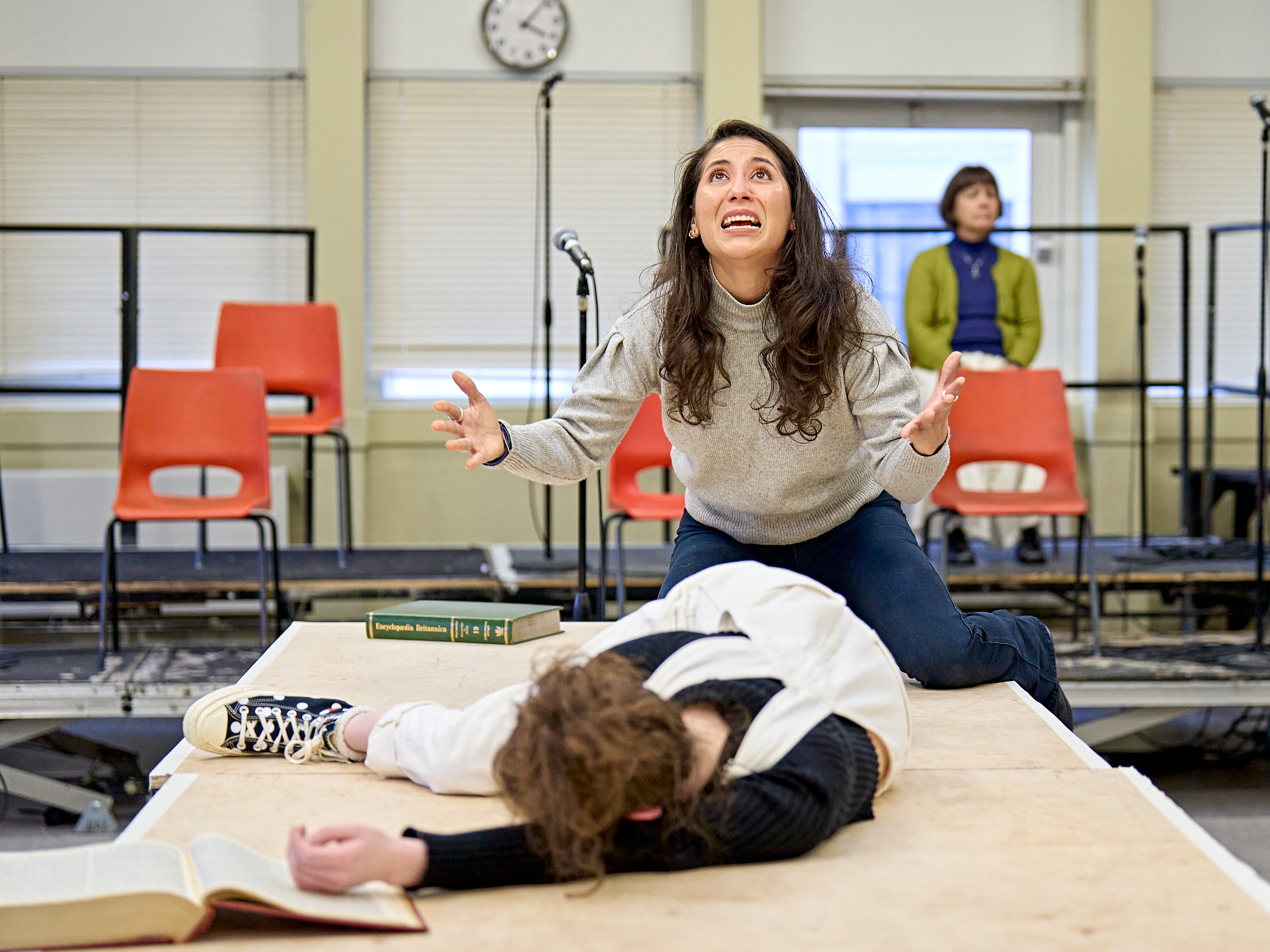Giullianna Martinez was raised in Florida by two Colombian immigrant parents who instilled in her “such a love and such a pride for being Colombian.” Adjusting from living in a place with a large Latinx community to working in the UK was tricky; “It took some time to find my tribe”, she explained. From training at the Royal Birmingham Conservatoire to tackling big Shakespearean roles like Hamlet’s Horatio and Twelfth Night’s Viola, Giullianna has taken the UK acting scene by storm, and is continuing to do so in her upcoming role in The Crucible.
This seminal 1953 play by Arthur Miller is the dramatised and partially fictionalised story of the Salem Witch trials, which took place in Massachusetts at the end of the 17th century. It tells the story of a town that descends into chaos when personal grievances take on new significance through allegations of witchcraft, eventually creating a frenzied whirlpool of accusation and persecution.
Be it in the 1690s Salem setting it depicts, the 1950s McCarthyism it alludes to, where many Americans were blacklisted, lost their jobs and were alienated socially for being alleged Communists, or the contemporary sociopolitical climate within which current audiences understand it, The Crucible presents a fascinating commentary on mass hysteria and the dangerous fallibility of human structures of reputation and authority.

This production promises to harness the power of the text and then dig deeper, taking an innovative approach and seeking to reframe the story “through a post-colonial lens with elements of the 1950s black civil rights movement and modern race relations incorporated”.
The Crucible is so deeply embedded in the cultural consciousness that it would be easy to stop asking questions. The upcoming Sheffield Theatre production spits in the face of this stagnancy. Giullianna emphasised the thought that is being given to "how this [story] resonates with us now, present day, 2024.”
Passionate about diversifying and expanding the narratives that are explored by Latinx actors, Giullianna’s role of Tituba in The Crucible is perfect - an opportunity to work in a “wonderful creative playground with a group of great, talented people.” “I’m learning so much every single day from every single person”, she tells me, and she describes the atmosphere that’s been cultivated in rehearsal, of exploration and trust.
However, this production is engendering more than just a stimulating working environment: it is building on Miller’s foundations of social critique and pushing further to ask pertinent questions of contemporary race relations.
For Giullianna, the key way in which this creative team is demonstrating a dedication to responsible and engaged storytelling is through the recasting of Tituba not as an East African actress as is typical, but as a Latina one, as is more true to her reality as a historical figure. “It was really exciting to read for Tituba,” Giullianna explained, “especially because the history supports this.”
Anthony Lau’s recasting is a way of “reclaiming who she really was” - not the enslaved Black woman from Barbados presented by Arthur Miller, but the Indigenous Arawak woman who had been kidnapped from her tribe, enslaved in Barbados and then sold to the Thompson plantation before being taken to Massachusetts by Samuel Parris.
Understanding Tituba as an Indigenous woman offers a new insight into the action of The Crucible, where a fear and hatred of Indigenous people is clearly articulated. As Giullianna says, “Tituba was not only a woman of colour; she was a Native American woman, and this is so important within the context of The Crucible. Just outside of this land that they have taken, there is the forest and there are the Native Americans that they fear so much.”
Whilst Miller’s Tituba is representative of a general cultural “other”, Lau’s recasting makes the important distinction of her specific heritage in order to provide the best possible contextual basis for the play as it unfolds. “When we lean into authenticity it makes our storytelling all the richer”, Giullianna asserts.
Not only is there a great functionality in recasting Tituba insofar as it elucidates the events of the play, but this decision also demonstrates a dedication to centring the true story of a marginalised and historically misunderstood Indigenous woman. “So much care has been taken by everyone involved to make Tituba’s story as authentic, honest, and true to source as possible”, Giullianna says, and on top of this, she stresses that “my goal is to really give her her voice back, to examine the history and reclaim who she was.”
Lau’s loyalty to truth over loyalty to a long and established casting tradition must be applauded: in “not only celebrating but embracing her Indigenous heritage”, this production invites us to consider the responsibility we have when we tell stories to engage with the full breadth of social and historical context, and proceed accordingly. As Giullianna urges us, “let’s be specific, let’s be authentic, let’s bring that to the table”.
Tituba becomes an emblem for all under- and mis-represented characters and people in the world of theatre. This reframing “expands and adds richness to our storytelling and the narrative, and really gets us to the heart of the story.” “Tituba didn’t have a voice, she didn’t have that luxury,”, and it must be noted that even by exploring who she was all these hundreds of years later, we cannot recover what has been censored and squashed.
There is so much that is irretrievable, and so many stories we can never know. By refusing to follow the well-trodden path of traditional casting, however, and by delving into the past as it truly was, we can take positive steps towards better representation and commit to working towards the reclamation of lost historical voices. “Tituba is a survivor,” and now her story will be reexamined to reflect a more complete picture of this survival.
“This is a completely new and fresh production of the crucible”, Giullianna tells me. “It’s a whole new direction”. And this whole new direction will be on at - shockingly - The Crucible theatre in Sheffield, from the 2nd to the 30th of March. It promises to be explosive; a revolutionary approach to a classic text.

















